The Package Travel and Linked Travel Arrangements Regulations 2018, commonly referred to as the Package Travel Regulations (PTR), set out specific guidelines that marketers and organisers of travel packages must adhere to in the United Kingdom. Advertising travel packages under these regulations comes with a number of responsibilities aimed at protecting consumers and ensuring transparency within the travel industry.
Advertising Requirements in Detail
1. Content Requirements
Firstly, any promotional material related to a travel package must clearly convey essential information about the holiday being offered. This includes, but is not limited to, the destination, itinerary, accommodation details, and meal plans. Advertisements should also specify the type of transport included and any additional services such as excursions or activities. The aim is to provide prospective travellers with a comprehensive overview so that they can make informed decisions before committing to a purchase.
2. Pricing Transparency
Another critical aspect mandated by the PTR is the clear display of prices. Advertisements must not be misleading and should reflect the total price of the travel package including taxes, service fees, and any non-optional extra charges. If the price is subject to change, the conditions under which such changes may occur should be clearly stated. This ensures that there are no hidden costs surprising consumers after they have already booked their travel.
3. Consumer Protection Information
Under the PTR, advertising must also inform potential customers about their rights. It should state that the travel package is protected under the Package Travel Regulations, offering reassurance regarding refunds and assistance in case of bankruptcy or insolvency of the operator. This is vital as it enhances consumer confidence by highlighting that they are covered against unforeseen circumstances that might impact their travel plans.
4. Accuracy and Fair Representation
The regulations also emphasise the importance of honesty in advertising. The information provided must be accurate and not misleading in terms of what consumers can expect from their travel experience. Misrepresentation of details such as hotel star ratings, the proximity of accommodation to tourist sights, or the availability of certain amenities is strictly prohibited and could lead to severe penalties.
5. Terms and Conditions
In addition, any terms and conditions applicable to the travel package should be made easily accessible. This includes cancellation policies, payment schedules, and any applicable exemptions. Consumers should have a clear understanding of what their booking entails and what actions they can take in case they need to make changes or cancel their arrangements.
6. Responsibility of Advertisers
The responsibility for compliance with these advertising requirements falls primarily on the organiser of the travel package, though travel agents and other third-party sellers also bear some responsibility. It's crucial for all parties involved in the promotion and sale of travel packages to ensure that all advertising content aligns with the guidelines set out by the PTR to avoid legal repercussions and maintain consumer trust.
Summary
In summary, the advertising requirements for travel packages under the Package Travel Regulations are designed to foster transparency, accuracy, and fairness in communication with consumers. By adhering to these mandates, travel organisers not only safeguard consumer rights but also enhance their own credibility and reputation within the marketplace.









.svg)





